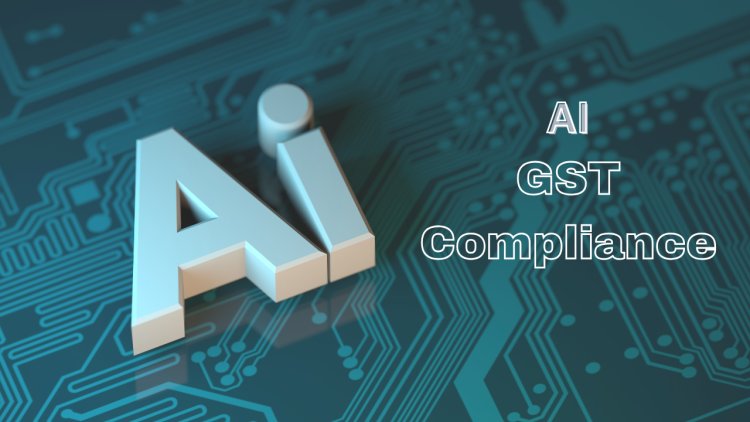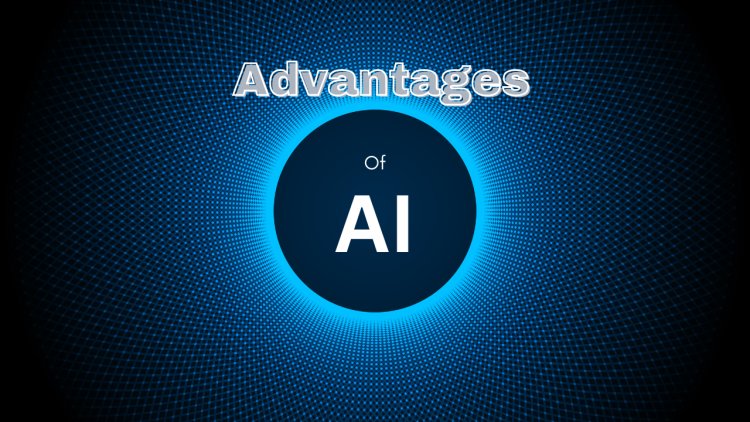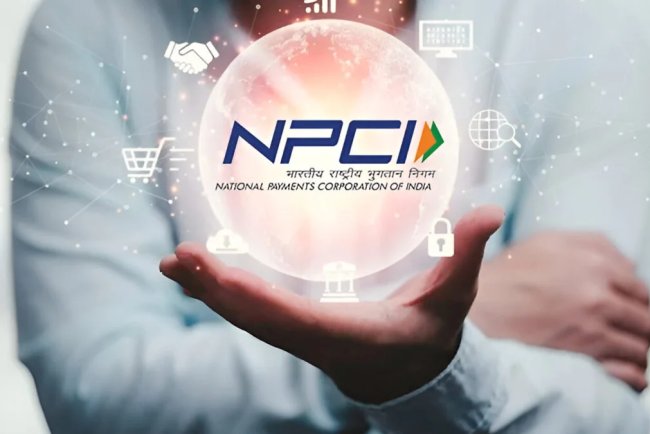The Role of Artificial Intelligence in GST Compliance: 2025 Guide
Artificial Intelligence is changing the face of GST compliance management for businesses, making it faster and more accurate. By 2025, AI tools help automate invoice matching, GST return filing, and fraud detection.. The AI tools reduce errors, saving time and money for businesses. AI systems also analyze large amounts of data to ensure compliance with GST rules and identify discrepancies quickly. Real-time insights help businesses to make better decisions and avoid penalties. AI-powered chatbots and virtual assistants make inquiries about GST rules easier and more prompt. As the GST law develops, AI develops with it. This guide reveals how AI has become a game-changer in GST compliance, helping businesses to reduce manual efforts while being efficient and reliable.

In this fast-changing finance and tax world, Artificial Intelligence is changing how businesses handle GST compliance. There are stricter rules from the government and businesses around the world growing, so this is the perfect time for the need for efficient and accurate GST management. Here is a guide explaining the role of AI in GST compliance and its benefits, uses, and future possibilities.
The Rise of Artificial Intelligence in GST
Artificial Intelligence in GST is not something of the future but an emerging way of shaping business practices today. AI is innovating business approaches through automated typical repetitive work, voluminous data insights, and real-time analysis to comply with GST.

Advantages of AI in GST
1. Automation of Routine Tasks:
Data entry, invoice matching, and GST return filing through AI-powered tools can be automated. This saves manpower effort and minimizes human errors, thereby making the compliance error-free and timely.
2. Seamless Data Reconciliation:
In terms of GST compliance, reconciliation of mismatched invoices is one of the most labor-intensive activities. However, AI algorithms can instantaneously compare data points and identify mismatches to ensure smooth data reconciliation.
3. Fraud Detection
AI systems can identify patterns and anomalies in data. They can detect potential fraudulent activities, such as fake invoices or tax evasion attempts, that can save businesses from financial and legal repercussions.
4. Real-Time Reporting:
AI enables real-time tracking and reporting of GST transactions. This allows businesses to monitor their compliance status and make informed decisions to avoid penalties.
5. Cost Efficiency:
With reduced dependency on manual procedures and the efficiency in processes, AI is reducing the cost of compliance and hence it can be easily afforded by companies of all sizes.
Applications of AI in GST Compliance
1. Invoice Management:
AI can automatically extract data from invoices, validate GST details, and ensure accurate filing. This is particularly useful for businesses dealing with high volumes of invoices.
2. Tax Calculation and Filing:
AI-powered systems can correctly compute GST liabilities and prepare returns as per the local law. They can further automate their entire filing procedure to save time and endeavor.
3. Predictive Analysis:
AI tools analyze historical data to predict tax liabilities and cash flow requirements. This will enable proper financial planning for the business.
4. Customized Alerts and Notifications:
AI can alert businesses on approaching deadlines, inconsistencies, or policy updates so that they are not caught off guard by their compliance needs.
5. Accounting Systems Integration:
AI applications integrate well with widely used accounting software, thus supercharging their capabilities and allowing businesses to run all financial activities under one umbrella. Anyone trained through an accounting course would be more effective in utilizing such integrated applications.
Role of AI in GST Course Curriculum
The trend towards AI use has transformed curricula, especially for accounting and taxation courses.
Real-world applications of AI in GST Compliance
1. E-Invoicing:
AI has played an important role in the introduction of GST and e-invoicing: invoice generation is automated, as well as validating invoices and uploading them to the GST portal.
2. GST Reconciliation Tools:
AI-based reconciliation tools are indispensable for the business world as these tools check the mismatch that arises between a company's purchases and sales records to ensure claims for ITC.
3. Chatbots for Customer Support
AI-powered chatbots can deliver instant support regarding GST-related questions, thus significantly reducing the extensive customer service team.
Challenges Faced in AI Implementation for GST Compliance
There are several advantages of AI implementation, but implementation in GST compliance is not entirely without challenges as follows:
1. High Initial Investment:
The deployment of AI solutions entails a significant investment upfront, which becomes a barrier to small businesses.
2. Data Security Concerns:
Handling sensitive financial data with AI raises concerns about data security and privacy.
3. Complexity of GST Laws:
Frequent changes in GST regulations can make it challenging for AI systems to stay updated.
4. Skill Gap:
Businesses need trained professionals to manage and utilize AI tools effectively. Enrolling in a Taxation course that covers AI applications can help bridge this gap.
Future of Artificial Intelligence in GST Compliance
Looking forward to 2025, AI has the potential to exponentially increase GST compliance. Here are a few prime trends:
1. Advanced Predictive Analytics:
AI will help businesses predict and solve compliance-related issues.
2. Better Integration:
AI tools integrate seamlessly with ERP and accounting systems, offering a comprehensive view of financial operations.
3. AI-driven Policy Insights:
Governments can use AI to scan compliance data and develop more effective taxation policies.
4. Greater Accessibility:
As a result of technological advancement, AI tools will be more affordable and accessible to small and medium enterprises.
Why Professionals Must Adapt to AI
With AI further transforming GST compliance, professionals have to adjust to this new landscape. The use of AI for compliance is no longer a simple matter of making compliance more efficient but also providing a competitive advantage in the market.
Conclusion
The Role of Artificial Intelligence in GST Compliance emphasizes the far-reaching impact AI can have in changing the whole tax process. From automating routine tasks and reducing errors, AI saves businesses' costs in adhering to the complex GST policies. In time to come, this AI GST compliance will eventually influence the landscape of taxation systems as a result, making the entire process far more efficient and accessible to a much broader audience and in a clearer way.
What's Your Reaction?















